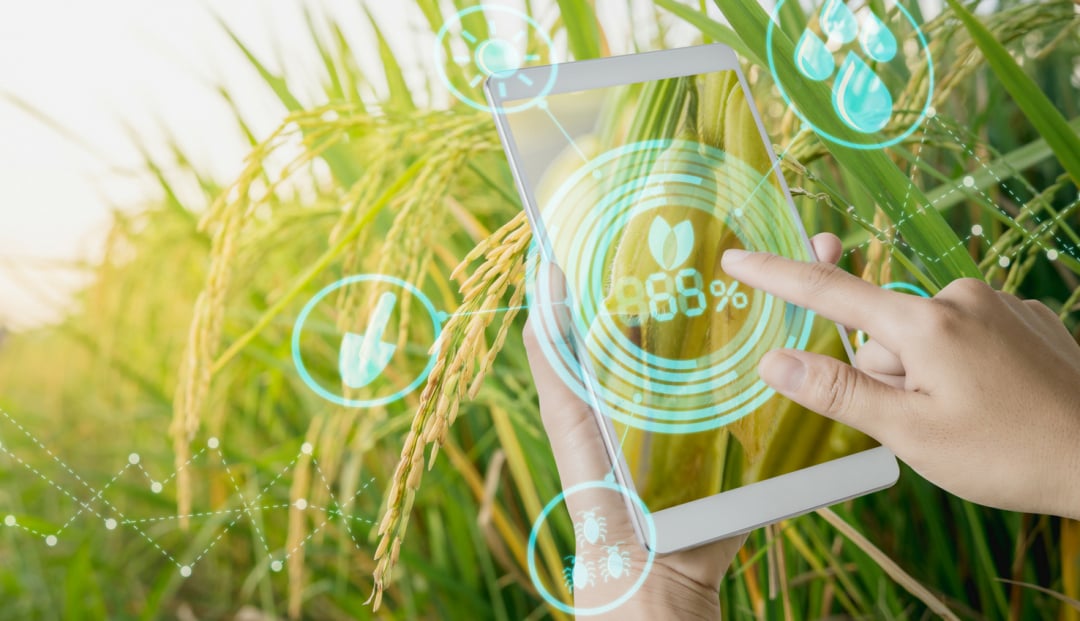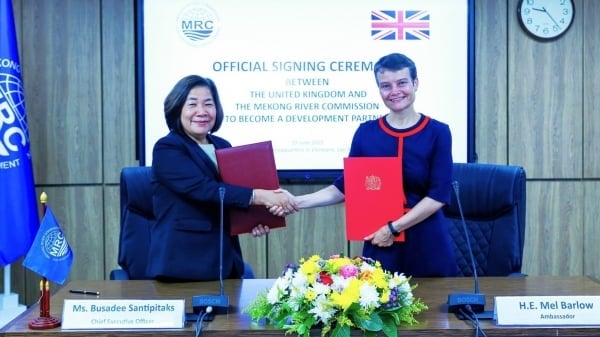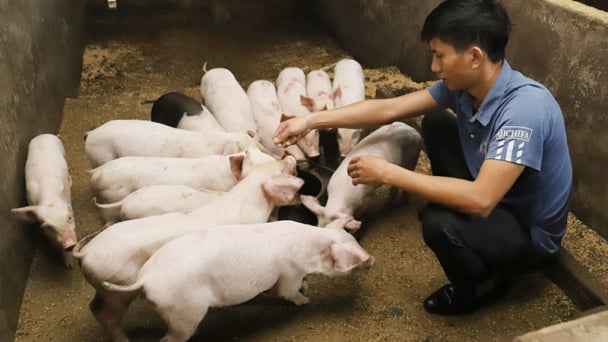June 20, 2025 | 19:00 GMT +7
June 20, 2025 | 19:00 GMT +7
Hotline: 0913.378.918
June 20, 2025 | 19:00 GMT +7
Hotline: 0913.378.918

Mr. Nguyen Huy Dung, Deputy Minister of Information and Communications. Photo: Tung Dinh.
On the morning of June 18th, the online conference "Digital transformation in agriculture and rural development" was jointly organized by the MARD and the MIC. At the conference, Mr. Nguyen Huy Dung, Deputy Minister of Information and Communications, has made a presentation about the effects of digital transformation in agriculture.
"To transform digitally is to make things different, what was done before will now be done differently, thanks to data and digital technology”, said Mr. Nguyen Huy Dung.
According to the Deputy Minister of Information and Communications, the current challenges are how to improve efficiency, improve performance, and increase farmers’ income. “Judging from this perspective, in the coming period, agriculture has a big room for development breakthrough. Needless to say, agriculture will be a key factor for Vietnam's economy to develop the breakthrough in a sustainable way", added Mr. Nguyen Huy Dung.
In digital agriculture, apart from traditional means of production, farmers have to use more digital materials, which are digital data and digital technology. As a result, farmers will have to acquire more knowledge and skills in trade, technology, biology, not just production skills.
Instead of simply “looking at the sky, looking at the earth, looking at the clouds”, the farmer will “look at the data, look at the data and look at the data”. Instead of simply buying seeds and fertilizers, the farmer will buy data. And the State can help all farmers in Vietnam by making basic data available and free.
Moreover, in digital agriculture, besides selling agricultural products, farmers can also sell experiences.
The way we see things should change: Instead of just looking at agricultural production, let's add the vision for agricultural economy; instead of just the agricultural economy, let's add the vision for agricultural digital economy. Instead of just finding a way to "eat to the fullest", find a way to "eat deliciously"; instead of just solving the problem for the needs of the majority, let's respond to the needs of personalization and small groups of different users. Digital transformation, digital technology have the ability to solve these problems. This is digital agriculture.

Digital transformation can solve many current problems in agriculture.
Firstly, Vietnam has a large number of households, but the farming scale is small, the capital is small, the equipment is old and outdated. This leads to the weaknesses of lack of cooperation and production being fragmented and scattered, dependent on intermediary traders.
Digital transformation can solve the problem by the electronic trading platform, eliminating intermediaries. It also allows connection between farmers in the same industry regardless of geographical distance.
Secondly, farmers still mainly rely on qualitative experience, less on quantitative data, almost no information about parameters on their own farming land such as weather, light, precipitation or minerals.
Digital transformation can solve the problem by having an agricultural digital data platform for farmers to know and make the best of their advantages. Public agencies can generate useful data for farmers by analyzing soil conditions, satellite images, weather data or other factors.
Thirdly, the post-harvest processing and preservation stages are only done on a small and rudimentary scale, leading to agricultural products experiencing rapid deterioration, short duration, and reduced quality when reaching consumers.
Digital transformation can use sensor devices to collect information about the storage environment, then process and analyze it. It also has the ability to help trace the origin of agricultural products, allowing transparency in the process and quality standards of agricultural products.
Fourthly, shipping time is slow, transportation costs are high, leading to reduced competitiveness.
Digital transformation can connect with carriers, optimize warehouse locations and delivery routes.
And lastly, farmers still feel uneasy to access credits for production.
Digital transformation can solve the problem by deploying mobile money that allows farmers to easily access credit with just the smartphone they have. Through transaction and credit histories, farmers can get access to loans with suitable interest rates.

(VAN) With international assistance, the harvesting of sargassum seaweed in Quang Ngai has become increasingly regulated, thereby safeguarding marine life and ensuring the stability of coastal communities' livelihoods.

(VAN) On June 19, the United Kingdom officially became a Development Partner of the Mekong River Commission.

(VAN) Biodiversity is being threatened by traditional remedies made from wildlife. Traditional medicine and humans must change to live in harmony with nature.

(VAN) Agrifood investment and finance solutions for people and the planet.

(VAN) Microplastic contamination has become pervasive in seafood, posing unprecedented challenges for food safety and marine ecosystems.

(VAN) Proactively using vaccines, combined with transport control and enhanced surveillance, is the only viable path toward biosecure and sustainable livestock production in Vietnam.

(VAN) Located in the southeast of Ho Chi Minh City, the Can Gio Mangrove Biosphere Reserve is considered the ‘green lung,’ a solid shield protecting the city.